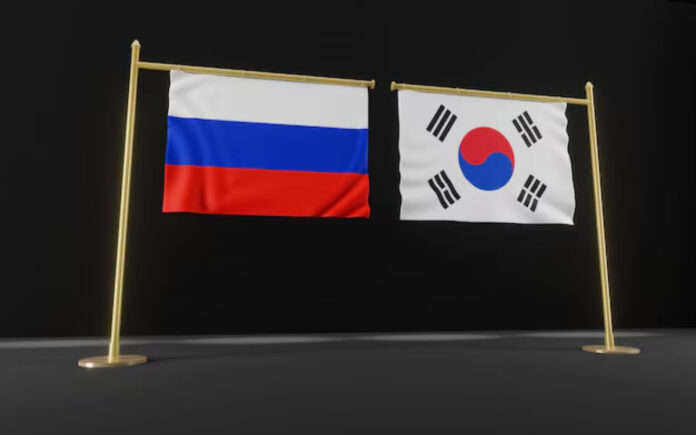Seoul: South Korea summoned the Russian ambassador to protest Moscow’s new defense pact with North Korea on Friday, amidst escalating border tensions marked by vague threats and sporadic incursions by North Korean troops.
Earlier, Kim Yo Jong, the influential sister of North Korean leader Kim Jong Un, issued a veiled threat in response to South Korean activists’ airborne distribution of anti-Pyongyang leaflets. South Korea’s military also reported firing warning shots the previous day to repel North Korean soldiers who briefly crossed the border, marking the third such incident this month.
These developments followed a recent defense agreement between Russian President Vladimir Putin and Kim Jong Un, prompting South Korean Vice Foreign Minister Kim Hong Kyun to summon Russian Ambassador Georgy Zinoviev. Kim emphasized that any military cooperation benefiting North Korea would violate U.N. Security Council resolutions, posing a direct threat to South Korea’s security.
Georgy Zinoviev assured he would relay Seoul’s concerns to Moscow, as tensions intensify along the inter-Korean border amid renewed psychological warfare involving propaganda leaflets.
Led by North Korean defector Park Sang-hak, South Korean activists launched 20 balloons carrying 300,000 leaflets, 5,000 USB sticks with South Korean media, and 3,000 U.S. dollar bills from Paju. Pyongyang views such materials as destabilizing, potentially undermining Kim Jong Un’s regime.
In response, Kim Yo Jong condemned the activists as “defector scum” and hinted at retaliatory measures without specifying details. Previous leafleting incidents led North Korea to retaliate with balloon launches dropping debris into South Korea, prompting Seoul to resume anti-North Korea propaganda broadcasts via border loudspeakers.
Also Read | Ukraine Grapples with Rolling Blackouts Amid Ongoing Russian Attacks
Tensions between North and South Korea have soared as Kim Jong Un escalates nuclear and missile programs, while aligning strategically with Putin against Western pressures. South Korea, backed by the United States, contemplates increasing support for Ukraine, albeit maintaining its policy against directly arming conflict-involved nations.
The situation prompted South Korean Foreign Minister Cho Tae-yul to confer separately with U.S. Secretary of State Antony Blinken and Japanese Foreign Minister Yoko Kamikawa, underscoring joint efforts to address regional stability concerns posed by the Moscow-Pyongyang alliance.
Also Read | India Responds to Canadian Parliament’s ‘Moment of Silence’ for Nijjar, Khalistan ‘Citizen Court’
North Korea’s sensitivity to external criticism and efforts to influence its populace underscore the volatile nature of inter-Korean relations. Past skirmishes, such as artillery exchanges triggered by loudspeaker broadcasts in 2015, highlight the potential for escalation despite recent incidents being deemed unintentional by South Korean military assessments.
As both sides fortify border defenses, South Korea remains vigilant against North Korean activities aimed at restricting civilian and military movement across the demilitarized zone.



